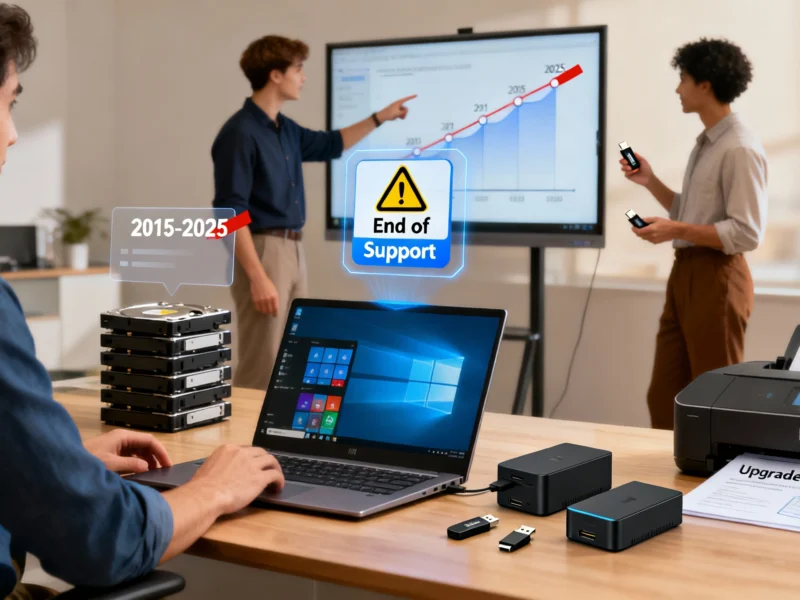Microsoft will terminate all Windows 10 support on October 14, 2025, leaving approximately 400 million PCs vulnerable to security threats. The deadline affects both individual users and corporations, with half of business devices unable to upgrade to Windows 11 due to hardware limitations.
The Scale of the Windows 10 End-of-Support Crisis
An estimated 400 million personal computers continue running Windows 10 as the support deadline approaches, according to the Public Interest Research Group. Corporate environments face even greater challenges, with market analysis firm Omdia reporting 550 million business machines still using the aging operating system. Microsoft’s strict hardware requirements for Windows 11, including TPM 2.0 security chips and specific processors, prevent approximately 50% of corporate devices from upgrading.
Windows 11 now runs on 49% of Windows desktop computers, recently surpassing Windows 10’s 40% market share according to StatCounter data. Despite Microsoft’s aggressive upgrade campaign, the remaining Windows 10 installations represent significant security risks. Cybersecurity experts warn that unsupported operating systems become prime targets for malware developers and hackers seeking to exploit unpatched vulnerabilities.
Security Update Options for Windows 10 Holdouts
Microsoft offers a temporary solution through its Extended Security Updates (ESU) program, providing critical security patches for Windows 10 from October 15, 2025, through October 13, 2026. The program delivers monthly security updates but excludes feature improvements and non-security fixes. Users must enroll before the October 14 deadline to maintain protection against emerging threats.
European Economic Area residents can enroll in ESU completely free, while international users have alternative free enrollment options. Microsoft now accepts either 1,000 Microsoft Rewards points or synchronization of settings through Windows Backup instead of the original $61 fee. The company’s support documentation emphasizes that ESU provides only essential security coverage and recommends upgrading to Windows 11 as the preferred long-term solution.
Alternative Paths Beyond Official Support
For devices incompatible with Windows 11, several alternatives exist beyond Microsoft’s ecosystem. Tech enthusiasts have developed Tiny11, a streamlined version of Windows 11 that removes resource-heavy components to run on older hardware. However, Microsoft explicitly warns against installing Windows 11 on unsupported devices, noting potential compatibility issues and unstable performance.
Security professionals recommend considering complete operating system changes for devices nearing end-of-life. Switching to Linux distributions or exploring ChromeOS devices provides modern security frameworks without hardware limitations. For users requiring Windows-specific applications, purchasing new Windows 11-compatible hardware remains the most secure option, with current models offering improved performance and built-in security features.
Preparing for the Post-Windows 10 Era
Organizations and individual users should immediately assess their upgrade paths and security strategies. The Cybersecurity and Infrastructure Security Agency recommends treating unsupported operating systems as critical vulnerabilities in security frameworks. Businesses managing large Windows 10 deployments should prioritize device inventory and budget allocation for replacement hardware or extended security contracts.
Individual users should back up critical data before attempting any upgrade or system change. Microsoft’s end-of-support guidance provides detailed migration checklists, including application compatibility testing and driver verification. The transition from Windows 10 represents one of the largest forced migrations in computing history, affecting approximately 28% of all active Windows devices according to Microsoft’s own activation statistics.
References
- Public Interest Research Group – Windows 10 usage statistics
- Omdia – Corporate device analysis
- StatCounter – Market share data
- Microsoft ESU Program – Official documentation
- Microsoft Support – Windows 10 end-of-support guidance
- Tiny11 Project – Alternative Windows 11 implementation
- CISA – Cybersecurity recommendations



